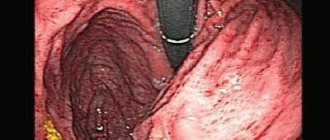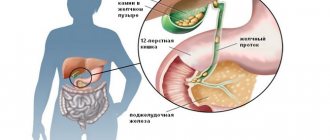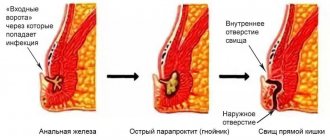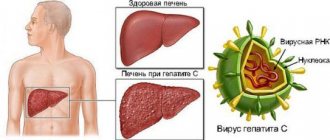Gastritis is a disease of the stomach in which individual foci of inflammation appear on the mucous membrane of the organ. In this case, the patient is concerned about various dysfunctions of the gastrointestinal tract, and the absorption of nutrients worsens. The disease has many types and forms, and many of them are dangerous with severe complications, including oncology and death.
Types of acute gastritis
- Catarrhal gastritis. This kind of gastritis is also called simple gastritis. This is acute gastritis, the distinctive feature of which is stagnation of leukocytes in the gastric mucosa, redness, and more. Catarrhal gastritis appears due to poor nutrition, but experts also identify internal factors, which include viral diseases.
- Fibrinous gastritis (or diphtheritic). It is also an acute form of gastritis, a feature of which is inflammation of the mucous membrane due to serious viral infection. The gastritis in question is not a common occurrence, but with it, special films appear on the mucous membrane, which contain fibrin protein.
- Corrosive gastritis. Acute gastritis, characterized by impaired functioning and tissue death. Corrosive gastritis begins to develop due to the penetration into the stomach of solutions containing a high content of acids and alkalis, as well as salts of heavy metals.
Classification
Gastritis is a common problem among patients of different ages, and it can be expressed in different forms. At the present stage, doctors classify acute gastritis according to the following criteria:
- According to the depth of inflammation:
- Superficial (partial damage to the mucous membrane);
- Deep (complete damage to the mucous membrane).
- By prevalence:
- Local (affects a specific area);
- Diffuse (spreads over the entire area).
- According to etiology:
- Infectious (penetration of bacteria into the body);
- Non-infectious (manifestation of allergic reactions, entry of chemicals into the body, reduced immunity).
4. According to the nature of the inflammatory process:
- Catarrhal - accompanied by the appearance of redness and swelling of the mucous membrane. In most cases, it is caused by the abuse of junk food;
- Fibrinous - can be caused by infection or poisoning with chemicals, in practice it is rare; when present, a gray or yellow-brown film appears on the walls of the stomach;
- Hemorrhagic (corrosive) - this type is usually classified as a severe form of the disease. Violation of the integrity of the gastric mucosa is the result of exposure to chemicals entering the body;
- Phlegmonous - in this case, destruction of the mucosal wall is observed under the influence of pus, as a result it penetrates into the submucosal tissue. It appears against the background of injuries, infections, complications of oncology or stomach ulcers.
Reasons for the development of gastritis
The main cause of the development of this pathology is the bacterium Helibacter pylori. It can contribute to irritation and inflammation. Among other things, the bacterium can cause problems with the functioning of the stomach.
acute gastritis how it manifests itself
In addition to the above-mentioned reasons, we can also mention common causes of acute gastritis , which are directly related to a person’s lifestyle.
These include:
- excessive consumption of junk food and alcoholic beverages,
- prolonged use of medications that contribute to irritation of the gastric mucosa,
- nicotine use,
- frequent depression.
Rapoport S.I. Gastritis (Manual for doctors) - M.: Publishing House "Medpraktika-M", 2010. - 20 p.
HCG therapy in most patients is carried out on an outpatient basis. Treatment methods for hCG are selected depending on the etiology, morphology and stage of the disease.
During the period of exacerbation of the disease, a gentle diet is prescribed, including mechanical, chemical and volume restrictions. These restrictions apply only during periods of exacerbation; as it is relieved, nutrition should become complete in compliance with the stimulating principle during the period of remission in patients with suppressed or reduced acid production. For patients with gastritis of any type, chocolate, coffee, carbonated drinks, and alcohol are absolutely contraindicated.
Canned food, concentrates and surrogates of any products, herbs, spices, as well as “Fast-food” products, dishes that provoke fermentation (milk, sour cream, grapes, black bread, etc.), smoked, fatty and fried foods, baked goods are excluded. test. But the diet should be varied, rich in proteins and far from eating exclusively jelly, broth and semolina. Small, 5-6 meals a day allows you to use its “antacid” effect.
When treating CG, it is necessary to take into account the phase of the disease, the clinical and morphological variant of gastritis, and the features of the secretory and motor-evacuation functions of the stomach. In case of severe exacerbation of the disease (pain, persistent gastric dyspepsia, weight loss), hospitalization is indicated. Hospitalization is also necessary if there is a threat or presence of complications (bleeding from erosions) and if differential diagnosis is difficult.
Groups of drugs traditionally used in the treatment of gastritis are represented by proton pump inhibitors (PPIs) - omeprazole, esomeprazole, etc., histamine H2 receptor antagonists (H2 blockers) - famotidine, etc., selective M-anticholinergics - pirenzepine, etc., antacids - gastrogel, almagel, gelusil, phosphalugel, Maalox, etc., prokinetics - domperidone, etc.
Autoimmune fundal atrophic gastritis (type A)
In the initial and progressive stages of the disease with preserved secretory function of the stomach, with serious disruption of immune processes, glucocorticoid hormones are prescribed (short courses, average doses not exceeding 30 mg of prednisolone per day, subject to immune tests).
The lack of effect makes a repeated course of such therapy impractical. At the stage of stabilization of the process, in the absence of clinical manifestations, patients do not need treatment.
For moderately severe secretory insufficiency, table No. 2 according to Pevzner is recommended; gastric juice is prescribed in combination with drugs that affect the motility of the gastric outlet (Motilak or Motilium).
In case of development of B12 deficiency anemia, treatment with vitamin B12 is carried out.
Often the observed decrease in the excretory function of the pancreas is compensated by replacement therapy (Pancreatin, Creon, Panzinorm, etc.).
Symptoms
Catarrhal acute gastritis symptoms :
External symptoms: heaviness in the stomach, which is accompanied by nausea, profuse salivation, and an unpleasant sensation in the mouth. Then pain and a gag reflex arise in the abdominal area.
Internal symptoms: the main indicators of body poisoning are weakness, loss of appetite and nausea.
Fibrinous gastritis:
If there is acute gastritis, the symptoms and treatment in adults are almost identical to the first type of gastritis, but the main difference is the appearance of a film on the inside of the stomach.
Corrosive gastritis:
The pathology is quite difficult to tolerate. Pain sensations occur in the oral cavity, and then in the stomach area. There is severe drooling, vomiting of a brown mass, difficulty speaking and swallowing.
symptoms of acute gastritis
Why is it better to seek treatment from us?
The clinic's staff includes gastroenterologists of the highest category and doctors of medical sciences. When you come to us with acute gastritis, you can be sure that you will not only receive high-quality medical care, but also get everything done in one place: diagnosis, treatment and rehabilitation! Our center uses highly efficient equipment and devices manufactured using the latest technologies. Sterile rooms and friendly staff will not leave you indifferent. The main thing in our work is an individual approach to clients! Make an appointment at a great price. Call!
The contents of this article have been checked and confirmed for compliance with medical standards by gastroenterologist-nutritionist Tatyana Vladimirovna Lucheninova
Diagnostics
Remember! Self-diagnosis in the presence of signs of acute gastritis can have serious consequences, so you should definitely contact a medical professional.
Algorithm of actions: carrying out tests, undergoing gastroscopy, examination by a doctor, prescribing tests and various procedures to determine treatment and an appropriate diet.
Prescribed procedures also include a urease breath test. The sick person drinks a special solution, after which he exhales into a universal mechanism.
The result of treatment and lifestyle after recovery
The effectiveness of therapy depends on the individual characteristics of the patient and the form of acute gastritis. The patient is recommended to take medications for approximately 3 weeks. The discontinuation of medications should be done by the attending physician. During this period and after it, follow a diet. If you have an attack of acute gastritis, the pathology may return. To monitor the effectiveness of treatment, a repeat gastroscopy and a Helicobacter test are performed (a special blood test is taken). For chronic gastritis, regularly visit a gastroenterologist 2 times a year.
After recovery, take care of yourself:
- eat rationally;
- get rid of heavy physical activity;
- give up bad habits;
- legalize the work and rest regime;
- avoid stress;
- walk in the fresh air more often;
- play sports.
The Kuntsevo Medical Center has its own physical therapy room. Light exercises under the supervision of professional instructors will have a beneficial effect on the functioning of the gastrointestinal tract.
Innovation
Scientists have begun searching for substances that are less traumatic for the body and effective in combating Helicobacter.
And in the course of numerous studies, it turned out that a pronounced positive effect is observed when taking certain beneficial bacteria. Among the numerous beneficial bacteria that have a positive effect on the microflora of the stomach and intestines, there are those that also fight “bad” bacteria, in particular Helicobacter. They have also been shown to increase the effectiveness of drug therapy in the treatment of gastritis and reduce the side effects of taking antibiotics.
The search for truly effective and safe remedies against Helicobacter took many years.
Prevention
The main measure for the prevention of catarrhal gastritis is compliance with the diet. The diet should not contain foods that can cause irritation of the mucous membranes of the digestive tract. You should not eat fast food or processed foods too often, or add excessive amounts of hot seasonings to your dishes.
Prolonged fasting or overeating should also be avoided.
Prevention measures:
- the diet should be dominated by healthy foods and dishes prepared by boiling, baking, stewing, and steaming;
- exclusion from the menu of unhealthy foods, too fatty, salty, spicy, fried foods;
- taking medications according to the regimens prescribed by the doctor or instructions;
- healthy lifestyle, proper nutrition, sufficient physical activity;
- strengthening the immune system (taking vitamin complexes, gentle hardening);
- prevention of infectious, viral, bacterial diseases;
- timely treatment of any disease (regardless of etiology);
- if there are problems with the digestive system, regular examination by a gastroenterologist.
Digestive processes in the human body
Our stomach is the most vulnerable organ of the digestive system. The most important and complex digestive processes take place in it:
- Mixing of food occurs in the stomach - this is a mechanical process.
- Next, the breakdown of food occurs there - this is a chemical process.
- And absorption of nutrients. If at least one of these processes goes wrong, the entire digestive system suffers, and all further stages of its work are disrupted.
Most often, the inner wall of the stomach is damaged, its mucous membrane, where the production of the most important components of digestion occurs - gastric juice and protective mucus.
Symptoms of gastritis of the stomach
Symptoms of gastritis can worsen due to errors in diet (a lot of fatty, spicy, salty foods), stress (it has been proven that in acute emotional situations the production of gastric juice increases), taking certain medications, severe fatigue, sudden changes in time zones if you travel.
But all these manifestations are a consequence of the fact that the stomach is unhealthy and needs help. The most common symptoms:
- Pain and heaviness in the abdomen.
- Bloating.
- Quick satiety, intolerance to certain types of food.
- So-called “hunger” pains, they occur on an empty stomach or during the day if you have not eaten for a long time.
- Also, with gastritis, pain often occurs soon after eating, especially if you have eaten heavily.
- Feeling of general discomfort in the abdomen throughout the day.
In fact, the most common cause of gastritis is the microbe Helicobacter pylori. The discovery of this microbe and proof of its destructive effect on the human stomach is one of the most important discoveries in medicine of the late twentieth century.
This is interesting
It should be noted that Helicobacter pylori is one of the most common human infections; residents of megacities are more likely to suffer.
According to Russian scientists, the prevalence of this infection in Moscow is 60.7 - 88%, in St. Petersburg - 63.6%, in the cities of Eastern Siberia - up to 90% (data from the TsNIIG GBUZ MKNTs DZM published in the journal "Treating Doctor" in 2016). The less processed and the simpler the product is prepared, the healthier it is for the stomach. Boiled or baked meat is healthier for the stomach than sausages and frankfurters.
Drink water 30-40 minutes before meals (a glass of warm water drunk before meals normalizes stomach acidity). At the same time, do not drink during meals or immediately after it, but at least after half an hour or an hour.
Chew your food thoroughly. If food enters the stomach in large pieces, this creates additional stress, causing discomfort and bloating.
In the evening, try to eat at least three hours before bedtime, and preferably four. Don't sleep after a big lunch.
Don't get used to enduring pain and discomfort. If you begin to “feel” your stomach, immediately consult a gastroenterologist.
Numerous studies show that the main problem in the development of gastritis of the stomach is damage to the mucous membranes by the bacterium Helicobacter pylori. And eliminating contamination with this bacterium is the gold standard of gastroenterology today. It is clear that no diet in the world can get rid of Helicobacter. This requires complex therapy.








